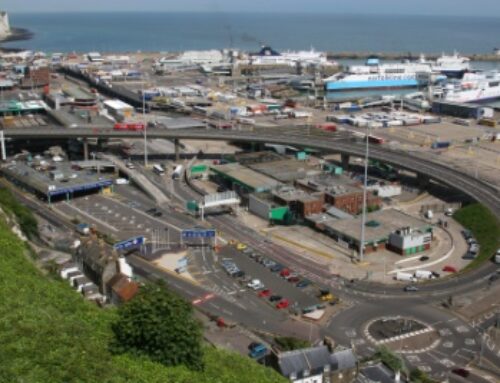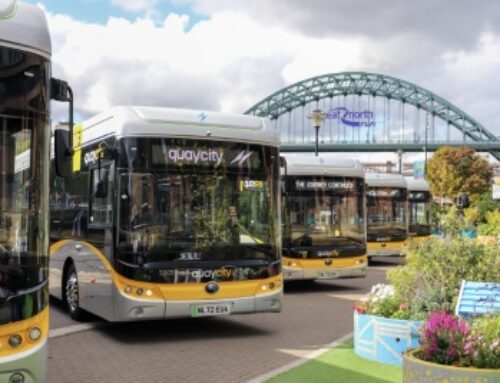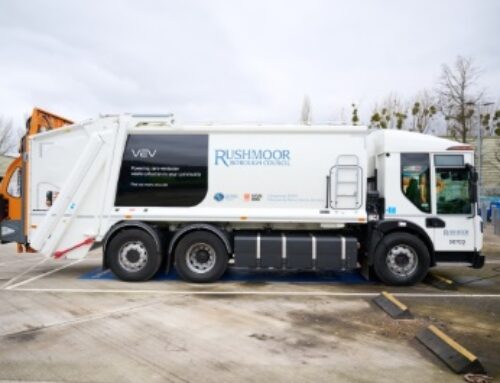New London mayor could transform truck designs
 The forthcoming elections for London Mayor may have an impact on road transport which extends way beyond the capital.
The forthcoming elections for London Mayor may have an impact on road transport which extends way beyond the capital.
Many of the major candidates have set out a stall which includes more restrictions on the use of trucks in the capital, and further revisions to their designs.
Such initiatives may well spread across the UK, and even the European Union (EU). The House of Commons transport select committee has published a report into road traffic enforcement, which calls for the Department for Transport to assess the effectiveness of Transport for London’s Safer Lorry Scheme (SLS) with a view to advocating rolling it out across the EU if it proves successful in reducing cyclist and pedestrian casualties in the capital.
The report added: “There have been calls from campaign groups to restrict the hours during which HGVs can use the streets in central London, in order to reduce congestion and the risk that these vehicles pose, especially to vulnerable road users.
“We recommend the Department for Transport evaluate the effect of such policies on the safety of vulnerable road users and on road haulage operators to see if a package of measures can be devised to balance the needs of these two groups.”
The SLS requirements include the fitment of Class V and VI mirrors and underrun side-guards to the vast majority of trucks over 3.5 tonnes gvw, and, in truth, are met by most vehicles anyway.
But changes are unlikely to stop there. The recent Construction Logistics & Cyclist Safety (CLOCS) exhibition in London saw major manufacturers unveil designs adapted or modified to improve cab visibility and reduce risk of pedestrian and cyclist strikes.
These changes included the adaptation of ultra-low-cab chassis from refuse collection applications, and the addition of kerb-view windows in-cab passenger doors, plus fitment of a variety of real-time camera systems and electronic warning devices.
It is increasingly likely that trucks fitted with such equipment will be the only ones permitted on-site at major government-backed construction projects such as HS2, irrespective of whether the sites themselves are in London, another major city, or in open countryside.
And candidates for the London mayoral elections are already weighing in with further suggested measures they think will improve road safety in London.
Outgoing mayor and recent recruit to the pro-Brexit campaign, Boris Johnson, has blamed the EU for preventing Transport for London from making unilateral changes to truck cab Construction & Use legislation – and his would-be Tory successor Zac Goldsmith has discussed the ideas of extending the congestion zone and restricting trucks from the capital during peak times, providing that this didn’t create problems elsewhere.
Labour’s Sadiq Khan wants to promote “safer, cleaner lorries” by getting City Hall and TfL to insist constructors use “direct vision lorries” on projects they fund. He also wants more emphasis on cycle segregation on the Cycle Superhighways in the capital and to prioritise Quietways which would encourage cycling away from busy roads.
For the Lib Dems, Caroline Pidgeon proposed banning what she called “HGVs and construction vehicles” from the city centre from 7am to 10am and from 4pm to 7pm, using the existing congestion charge cameras for enforcement. She claimed this measure would “improve air quality”, as would the construction of a number of edge-of-town “delivery hubs” that would avoid the need for large vehicle to enter the capital.
On her campaign website, Green Party candidate Siân Berry has said that: “All public vehicles should be replaced with low cab designs as quickly as possible, along with retrofitted safety measures on all vehicles entering the city.
“Conditions on safe construction vehicles should be put into all new planning agreements, and an ambitious scheme of incentives and regulations created for the freight industry, including freight consolidation and switching to smaller vehicles as well as new designs for HGVs.”
UKIP’s Peter Whittle had not responded to Transport Operator’s request for detail on his road transport policy as we closed for press. Other than a pledge of support for London’s black cab drivers, he appears to have made very few substantive statements on the subject.
The Freight Transport Association (FTA) has issued its own London elections manifesto, pointing out that other pledges candidates have made, particularly with regard to housing, will require a substantial number of truck movements. It highlights the clean exhaust emissions of modern trucks, the improving record of truck-cycle safety and the need for reform of the current night-time lorry ban.
“Freight is vital to the future of London,” said FTA chief executive David Wells. “Cities are built by freight and they live on freight. The social importance of the logistics industry is all too often overlooked.
“FTA’s manifesto emphasises that freight is always only used when there is a purpose. Construction is a great example of this – London apparently needs 59,000 new homes built every year. It is clear that you cannot get this done without the use of lorries to supply the building and fitting of them.”
FTA’s manifesto can be downloaded here.











